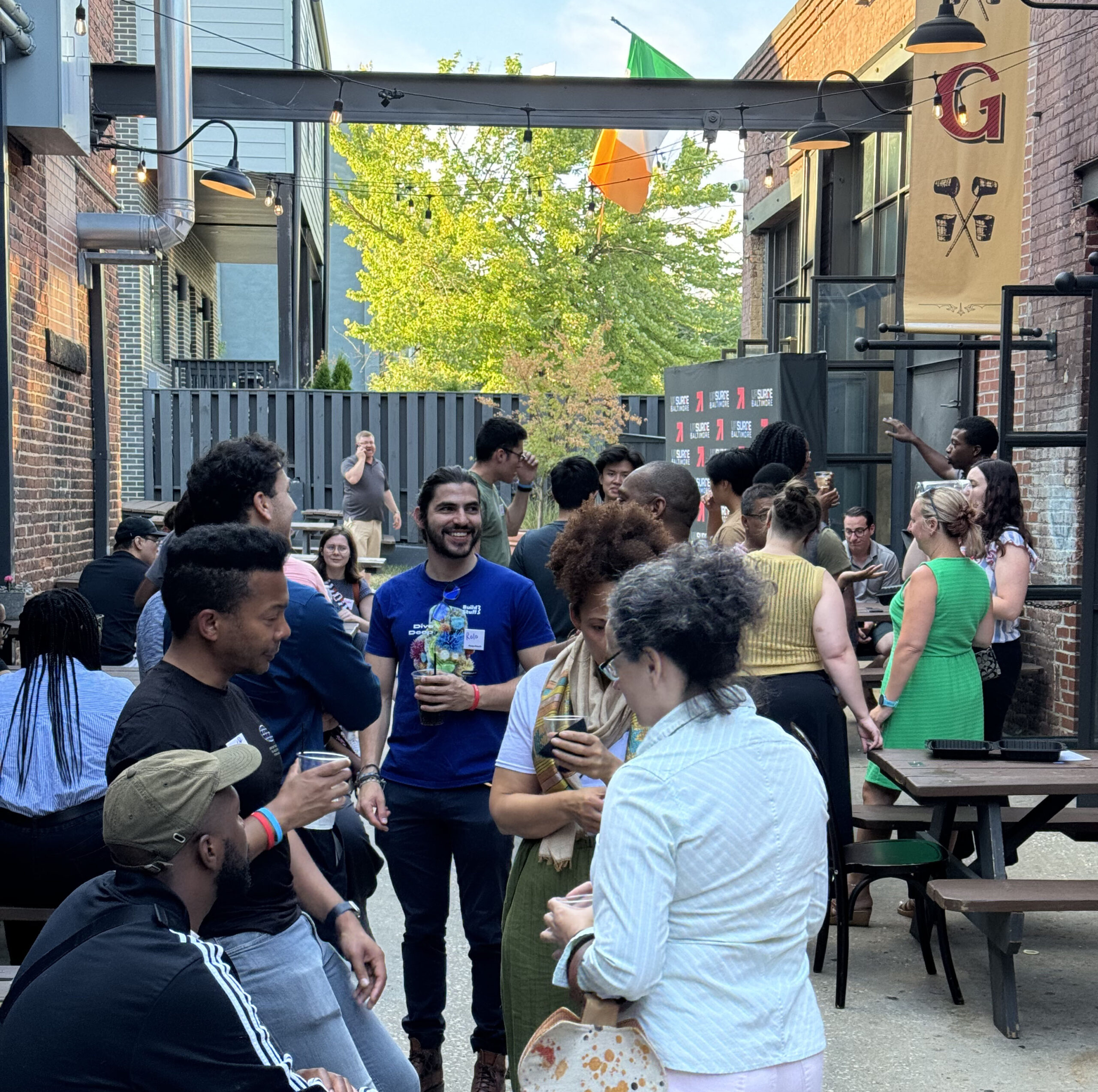Since the term “equitech” emerged as a descriptor for Baltimore’s ecosystem, it’s widely accepted that diversity is a strength we ought to lean into.
Diverse teams are better equipped to understand and design for a variety of customers. They can identify risks and opportunities that homogeneous teams might otherwise overlook. Diverse teams grow the economic pie, rather than competing for smaller and smaller slices.
Put another way: The fact that entrepreneurship looks different in Baltimore, as compared to San Francisco or Austin, is our distinct advantage over other cities. To claim that Baltimore is striving for and progressing toward equity for all of our residents, we must intentionally measure and collect the appropriate data.
So, how are we doing on measuring the ecosystem’s diversity?
On Oct. 17, Baltimore Tracks hosted a virtual meeting for prospective members to learn more about the organization and its initiatives. According to the email invite, attendees could expect to gather to “share ideas, frameworks, and best practices for driving forward DEIB [diversity, equity, inclusion and belonging] practices.”
Baltimore Tracks was born in 2020, following the murder of George Floyd in Minneapolis. Among other things, the ensuing Black Lives Matter protests, in more than 2,000 cities across the United States and 93 countries, demanded greater accountability and commitment from institutions and corporations around racial justice and equity. The tech industry, like many others, faced greater scrutiny for its lack of diversity and representation.
The organization ultimately grew into a coalition of over 40 local tech companies that publicly committed to researching and promoting more diversity and representation — particularly for Black people, who constitute a majority of the city’s residents — within the innovation ecosystem. In the year following its creation, the collective published a report examining self-disclosed demographic data from 19 of its members and partnered on a paid internship program with city agencies and several other organizations. It kept a quieter profile over the following years, during which it sought out nonprofit status.
Last week’s call took place at this juncture in the organization’s future. Steering committee members Eden Ryan and Meredith Bennett hosted the call and were joined by two members of the ecosystem, in addition to the author of this article. The small Zoom room created an opportunity to ask deeper questions, offer feedback on strategies and better understand how new members could get involved.
Here are some highlights from the conversation:
- One of Baltimore Tracks’ key initiatives is an annual diversity, equity and inclusion (DEI) audit of the ecosystem. However, data gathering and consistency pose a challenge. Changing steering committee members and inconsistent company participation makes setting baseline DEI metrics complicated. The group discussed ways in which Baltimore Tracks could address this, including partnering with place-based institutions (like universities) that could easily scale the reach of the survey over the long term, as well as house and manage the often sensitive data. Participants also noted interest in expanding the coalition to include a broader set of local companies.
- Another challenge highlighted during the call was the intensity of the audit. Due to consulting costs, the robustness of the surveys and general survey fatigue, company participation is not always a given — and data often can be incomplete.
Siobhán Hayes, director of the Tech Lab at Digital Harbor Foundation, proposed a flexible approach: “a cupcake version” of the audit and engagement opportunities that makes participation easier for more companies. This could also look like free workshops, offered by Baltimore Tracks, for founders and hiring teams to review their job descriptions and suggest industry-recommended practices to make them more equitable. In addition, Hayes supported the idea of certification from Baltimore Tracks that indicates an employer met a certain standard of equity in their hiring practices or company culture, as well as prompts a committed leader to ensure ongoing compliance and company involvement. - Collaborating with other organizations tracking DEI initiatives in the ecosystem, such as the Associated Black Charities, would help align efforts, save resources and maximize impact. Further, this could improve data consistency practices and provide measurement infrastructure for other collaborative networks.
Those interested in the org’s progress can learn more and find ways to get involved on its website.
One reason local journalism is important is the potential for community feedback and meaningful dialogue. At the end of each of my articles, I’ll include some prompts or questions for you to provide feedback. As I continue to write, I hope to share the responses and qualitative data back out to readers!
Thanks for reading. Now, I’d love to hear from you:
-
What do you think are meaningful metrics around representation and DEI that ought to be gathered?
-
What other tech/entrepreneurship/ecosystem events are happening around town that we should know about?
-
Who else should I be talking to? What voices & opinions need to be centered?
- What other questions about the ecosystem do you have?
Reach out to me at anand.macherla@technical.ly.







